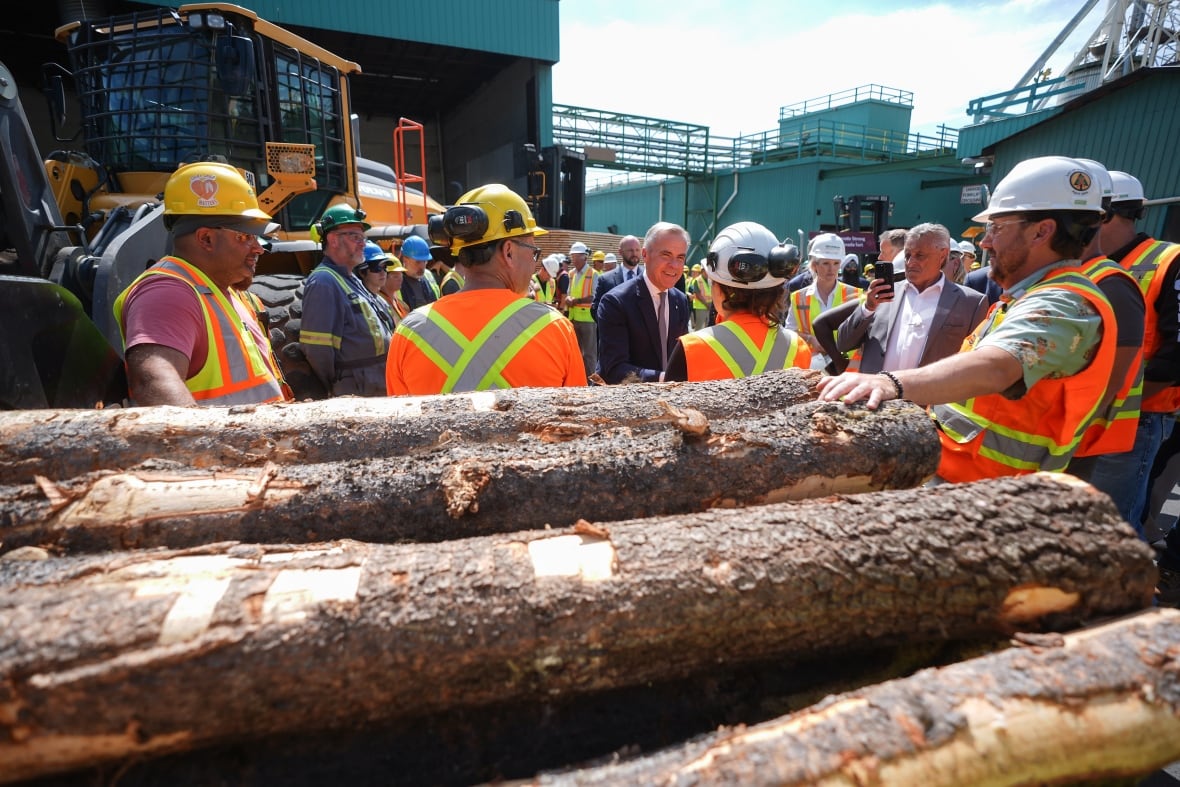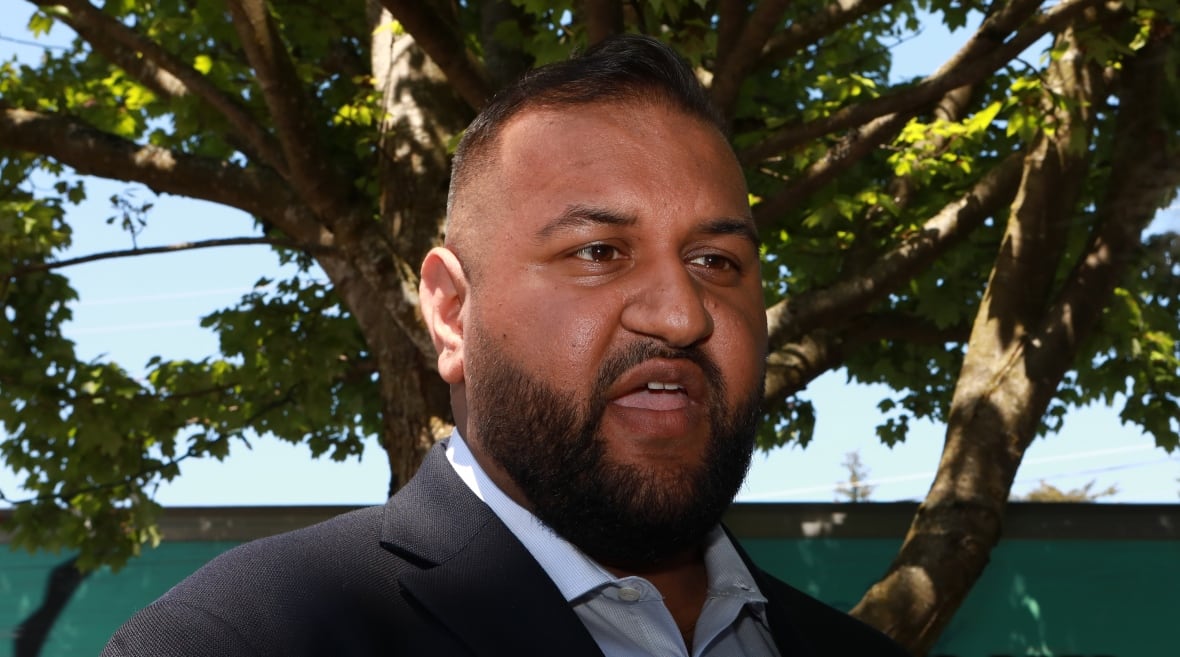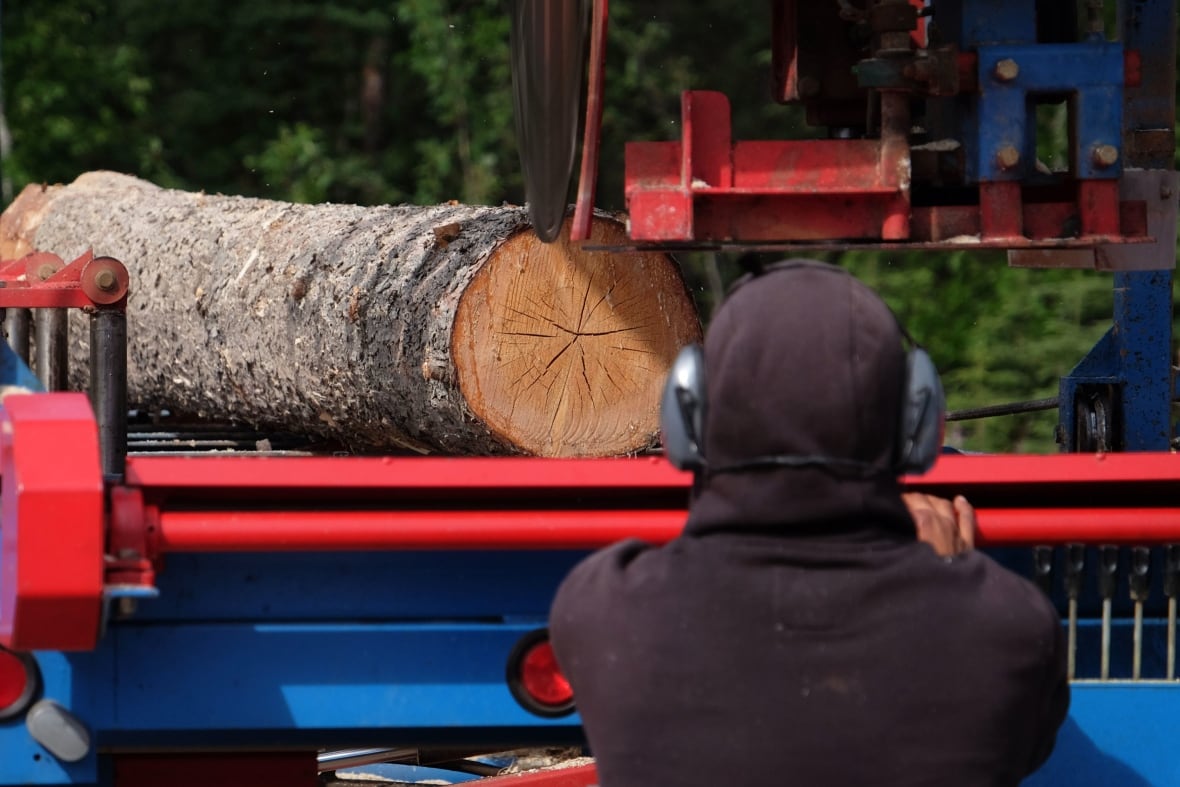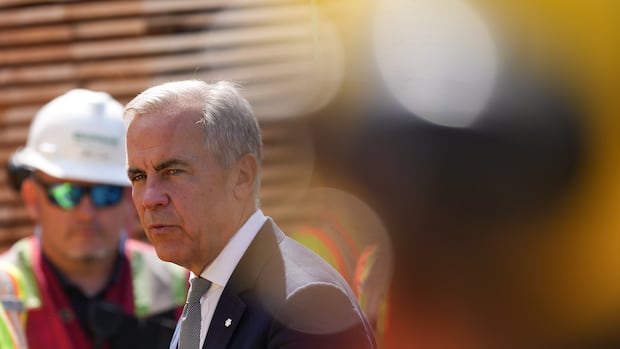Cautious optimism in B.C. after PM announces $1.2B in softwood lumber support
B.C.'s forestry industry has taken major blows in last few years as exporting to U.S. has become harder
Analysts are expressing cautious optimism after the prime minister announced $1.2 billion in federal support for the struggling softwood lumber industry, one of B.C.'s largest employers.
Prime Minister Mark Carney announced Tuesday that the federal government would be spending up to $700 million in loan guarantees for forestry companies and $500 million, largely in grants and contributions, to spur product development and market diversification for the hard-hit industry and millions for retraining lumber workers.
B.C.'s forestry industry has taken major hits over the last few years, as escalating U.S. duties on softwood lumber imports have piled atop a number of other challenges that have led to thousands of job losses.
Members of the province's forestry industry, as well as B.C.'s forests minister, welcomed the Tuesday funding announcement, especially as the federal government has previously been accused of ignoring the softwood lumber industry's struggles in B.C.

Analysts say that long-term changes and diversification in the forestry industry are needed to keep it sustainable, but resolving the industry's barriers to U.S. exports would be the most effective short-term measure.
"I'm going to be looking forward to working with my colleague [federal Natural Resources Minister] Tim Hodson on ensuring British Columbia gets its fair share of those dollars, that capital funding, that I hope will be able to help transform this sector," B.C. Forests Minister Ravi Parmar said Tuesday.
Parmar told The Canadian Press that the share would be somewhere between 40 and 50 per cent, given the size of the provincial softwood lumber industry.

The minister commended Carney's government for not ignoring the softwood lumber industry, and said former prime minister Justin Trudeau's government had not made it a priority.
"I would say from the previous Liberal administration to this one, it's a night and day comparison," Parmar told CBC News Network.
"I really appreciate the prime minister showing very strong leadership on ensuring that we can get a long-term softwood lumber deal."
Push for diversification
The United States has long been the single largest market for B.C. lumber exports, representing over two-thirds of the market for the approximately $10-billion industry.
But amid a series of challenges for the province's forestry industry — including a mountain pine beetle infestation that has killed hundreds of thousands of trees — mills have been closing around the province in recent years, and major forestry companies are opening up new mills in the United States.
In 2023, numbers from Statistics Canada showed B.C. had lost more than 40,000 forest-sector jobs since the early 1990s.
In addition to the Tuesday funding announcement, Carney announced that his government would use Canadian lumber and workers as part of its promise to build affordable homes.
Kurt Niquidet, the president of the B.C. Lumber Trade Council, said the liquidity supports announced by Carney on Tuesday would help in the short term, but a long-term negotiated settlement with the U.S. needs to be the priority.
"The diversification, as well as sort of growing the market within Canada, that is helpful as well and welcome. But that's going to be more of a longer-term initiative," Niquidet said.
Russ Taylor, a forest industry analyst and consultant, said that B.C.'s forestry industry had been struggling to make inroads in non-U.S. markets for some time.
"We've been trying for decades to expand our product exports into the markets, and the U.S. is the best fit — partly because we make what they want, and the other markets around the world don't really want what we make," he said.
"So it's a real challenge to get out of the U.S. market."
Last month, the U.S. Commerce Department decided to hike anti-dumping duties on Canadian lumber to 20.56 per cent.
If combined with countervailing duties, the total tariff rate on Canadian lumber would be almost 35 per cent.
Parmar noted that U.S. President Donald Trump also has initiated a federal investigation into U.S. imports of lumber and timber, citing "national security," which could further impact B.C.'s forestry industry when combined with the tariffs.
Still, he remained optimistic about the B.C. government's efforts to diversify its lumber exports, particularly in the Asia-Pacific region in Vietnam and Japan.
"We're going to be looking to find those new partners, and I think the U.S. administration is going to be taking a number of steps, I hope, to be able to secure a deal," he said.
"But if they don't, I think they're going to be paying the price for higher lumber costs in the years ahead."
Call for more direct support
One union representative welcomed the federal money announced Tuesday, but said more needed to be done to get money directly to struggling workers.
"The offer of loan guarantees — that needs to be tied to job guarantees and community guarantees, and making sure that the money is going to keep the industry where it is ... and keep people working," said Gavin McGarrigle, western regional director for the Unifor union, which represents more than 22,000 forestry workers across Canada.
McGarrigle sits on the B.C. government's softwood lumber advisory council and said that the federal government needs to consult with industry and unions to ensure the money is being spent appropriately.
"It's no good to talk about training people for the jobs of the future if they don't have a job today," he said.
"And that's what people in these sectors and industries are looking at, making sure that they get a guarantee that their facility is going to be stable through the next year or two."

With files from CBC News Network, BC Today, Radio West, The Canadian Press, and Catharine Tunney






